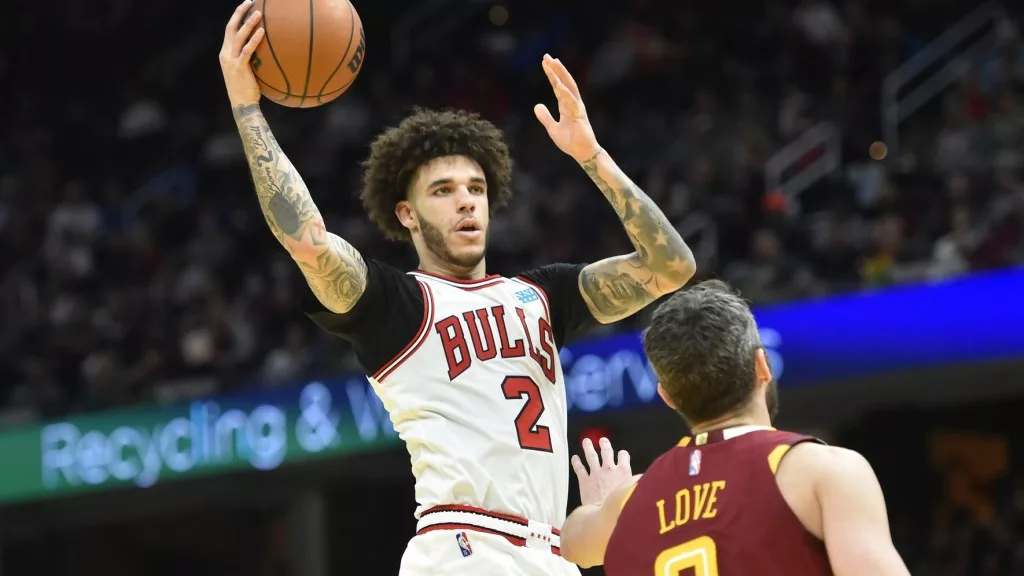The NBA trade season has ignited a whirlwind of reactions, particularly following the recent trade that sent Lonzo Ball from the Chicago Bulls to the Cleveland Cavaliers in exchange for Isaac Okoro. This move has left fans and analysts alike scratching their heads, as it mirrors last season’s controversial deal involving Alex Caruso, where the Bulls also received no draft capital in return.
As the news broke, ESPN’s Shams Charania confirmed the trade, leading to a flurry of social media commentary. Fans quickly took to platforms like Twitter to express their opinions, with many questioning the Bulls’ decision-making and praising the Cavaliers for their acquisition.
Ball’s contract was deemed “tradeable,” and at just 24 years old, Okoro fits the Bulls’ strategy of acquiring young players with experience. However, his $11.8 million salary for the 2026-27 season could potentially hinder the Bulls’ projected cap space for that year. K.C. Johnson of NBC Sports noted the implications of this move on the Bulls’ salary cap, highlighting the long-term effects of their asset management.
In an intriguing twist, some fans pointed out that the Bulls had previously received a first-round pick for Ball at the trade deadline, provided they took on Marcus Smart’s contract. This missed opportunity has led to further criticism of the Bulls’ front office, with many questioning their asset management strategy. Analyst Kenny Beecham emphasized this by tweeting about the Bulls’ failure to secure any picks in their recent trades.
The sentiment among fans was largely negative regarding the Bulls’ decision. Evan Sidery pointed out that the Bulls had traded two guards without acquiring any draft picks, further complicating their already challenging roster situation. Social media reactions ranged from disbelief to outright mockery, with fans expressing frustration over the Bulls’ management.
On the other side, Cavaliers fans expressed excitement about Ball joining their team. Many believe that his playmaking abilities could significantly enhance the Cavaliers’ offensive strategy. One fan humorously remarked that “30 games of Lonzo is better than 82 games of Okoro,” reflecting optimism about Ball’s potential impact in Cleveland.
The trade has also sparked discussions about the future of Ty Jerome in Cleveland. It’s speculated that acquiring Ball might indicate the Cavaliers’ inability to retain Jerome, as re-signing him would significantly increase their payroll and tax obligations. Yossi Gozlan highlighted this financial consideration, adding another layer of complexity to the trade analysis.
As the dust settles, the implications of this trade are far-reaching. The Bulls have now traded key players like DeMar DeRozan, Zach LaVine, Alex Caruso, and Ball without gaining any draft capital in return, leading to widespread criticism of their franchise direction. Fans and analysts alike have expressed disbelief at the current state of the Bulls, with some calling it an “absolute joke” of a franchise.
In contrast, the Cavaliers are looking to capitalize on this opportunity. The prospect of Lonzo Ball distributing the ball to young stars like Evan Mobley has fans buzzing with anticipation. As one fan put it, “Evan Mobley getting passes from Lonzo Ball now—oh my, another leap is coming.”
While the trade has garnered mixed reactions, one thing is clear: the NBA landscape continues to evolve rapidly, and fans are eager to see how these changes will play out on the court. As the Cavaliers welcome Lonzo Ball, the Bulls must navigate their uncertain future, hoping to turn their fortunes around in the coming seasons.
In conclusion, the trade of Lonzo Ball to the Cavaliers has not only stirred excitement and hope among Cleveland fans but has also raised significant concerns regarding the Bulls’ management and strategy. As the NBA season progresses, all eyes will be on both teams to see how this trade impacts their respective trajectories.

